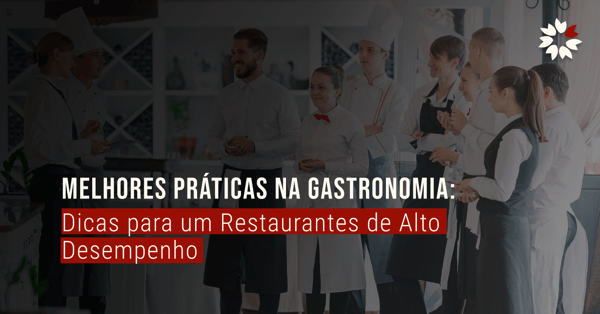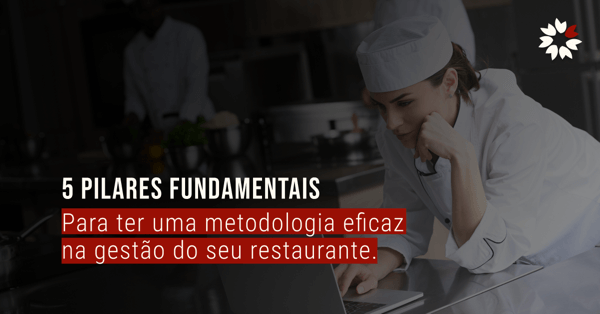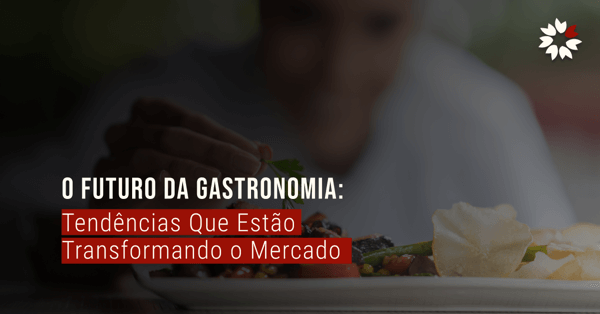No dinâmico segmento de gastronomia, adotar melhores práticas é crucial para garantir a eficiência operacional, a satisfação do cliente e a sustentabilidade do negócio. Aqui estão algumas diretrizes que podem ajudar a elevar os padrões do seu restaurante:
1. Planejamento e Controle Financeiro
– Orçamento e Projeções: Elabore um orçamento detalhado e faça projeções realistas de vendas. Analise seu fluxo de caixa regularmente.
– Custo da Mercadoria Vendida (CMV): Monitore o CMV de maneira rigorosa, buscando sempre mantê-lo em níveis aceitáveis e identificando áreas de desperdício.
2. Padronização de Processos
– Fichas Técnicas: Utilize fichas técnicas para todos os pratos, garantindo que a preparação siga os mesmos padrões, assegurando qualidade e consistência.
– Treinamento Regular: Invista no treinamento constante da equipe, garantindo que todos conheçam os procedimentos e padrões estabelecidos.
3. Qualidade dos Ingredientes
– Fornecedores Confiáveis: Escolha fornecedores que ofereçam produtos de alta qualidade e que possam garantir a consistência nos insumos.
– Insumos Frescos: Sempre que possível, utilize ingredientes frescos e sazonais. Isso não só melhora a qualidade dos pratos, mas também reduz custos.
4. Atendimento ao Cliente
– Formação da Equipe de Atendimento: Ofereça treinamento contínuo para a equipe de atendimento, focando em técnicas de hospitalidade, empatia e resolução de problemas.
– Feedback do Cliente: Crie um sistema para coletar e analisar feedback dos clientes. Use essas informações para fazer melhorias contínuas.
5. Experiência Gastronômica
– Ambiente Agradável: Crie um ambiente acolhedor e coerente com o conceito do restaurante, buscando sempre o conforto do cliente.
– Interação com o Cliente: Considere oferecer eventos como noites de degustação ou interação com chefs, que podem educar e envolver os clientes.
6. Inovação e Criatividade
– Atualizações de Cardápio: Revise e atualize o cardápio regularmente. Os clientes gostam de novidades e novidades sazonais podem atrair mais pessoas.
– Aproveitamento de Tendências: Esteja atento às tendências do mercado (como opções veganas, sem glúten, etc.) e adapte-se a elas para atender às novas demandas.
7. Sustentabilidade
– Redução de Desperdício: Adote práticas que minimizem o desperdício de alimentos. Utilize sobras de forma criativa e implemente compostagem.
– Práticas Sustentáveis: Invista em fornecedores e produtos eco-friendly, além de promover práticas de reciclagem e redução do uso de plásticos.
8. Marketing e Presença Online
– Branding Coerente: Desenvolva uma identidade de marca forte e coerente que ressoe com o público-alvo.
– Marketing Digital: Utilize as redes sociais e o marketing digital para engajar com os clientes, promovendo o menu e eventos especiais. Considere também as avaliações e feedback em plataformas como TripAdvisor e Google Meu Negócio.
9. Monitoramento e Análise de Desempenho
– Métricas de Desempenho: Estabeleça KPIs (Indicadores-Chave de Desempenho) para monitorar a eficiência, qualidade do atendimento e a satisfação do cliente.
– Revisões Regulares: Faça reuniões periódicas para analisar o desempenho do negócio e discutir as possíveis melhorias com a equipe.
10. Saúde e Segurança
– Treinamento em Segurança Alimentar: Certifique-se de que toda a equipe esteja bem treinada nas práticas de segurança alimentar para prevenir contaminações e garantir a qualidade dos alimentos.
– Higiene e Limpeza: Sempre mantenha altos padrões de limpeza e higiene, tanto na cozinha quanto nas áreas de atendimento.
Adotar essas melhores práticas não apenas melhora a operação do restaurante, mas também contribui para a construção de uma base de clientes leais e satisfeitos. O compromisso com a qualidade, a inovação e a sustentabilidade pode fazer toda a diferença em um mercado tão competitivo como o da gastronomia.




